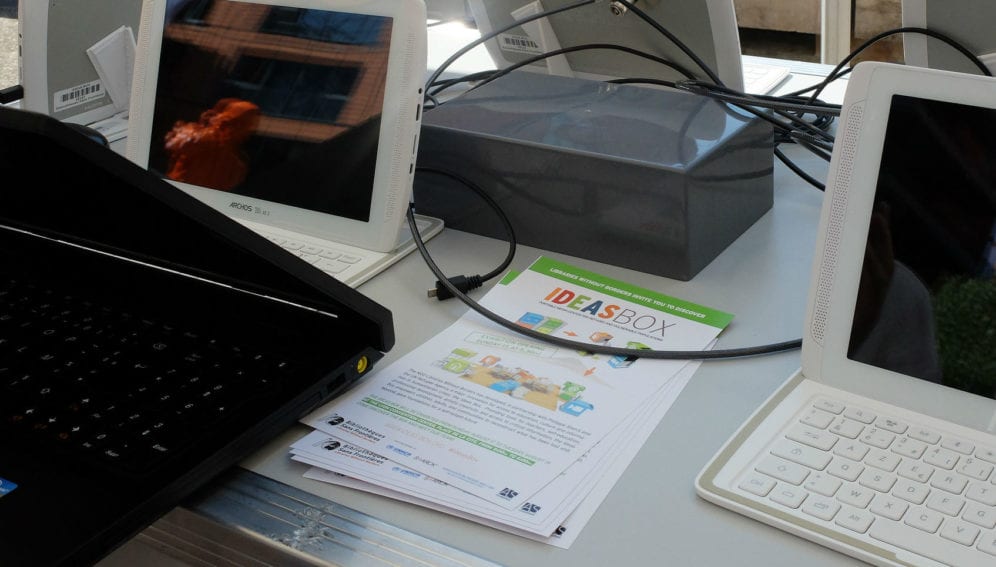By: James Riley
Send to a friend
The details you provide on this page will not be used to send unsolicited email, and will not be sold to a 3rd party. See privacy policy.
An innovative project to set up portable libraries in refugee camps has proven its worth in a three-month assessment of its pilot project in Burundi. There are now plans to expand the initiative across Africa and beyond.
The libraries are known as Ideas Boxes. They can provide refugee camps with access to educational resources and a connection to the outside world — to “foster creativity” — says project officer Allister Chang.
“We have three [Ideas Box libraries] in UN Refugee Agency camps in Burundi, as part of a pilot aiming to expand across the Great Lakes African region, and hopefully into other areas of the world,” Chang tells SciDev.Net.
An Ideas Box measures 80x120x160 centimetres, the size of two standard European shipping pallets, and weighs approximately 800 kilograms.
It contains a host of resources such as tablets, laptops, e-readers containing e-books, and internet connection hardware, that can be tailored to needs at destination. The box can be unpacked in less than 20 minutes to create a library and media centre (see video link below).
“Firstly, our goal is education, such as improving literacy rates and increasing achievement in schools, but also facilitating professional training for adults,” Chang tells SciDev.Net.
“Secondly, connectivity, as we believe connection fosters creativity. This includes the chance for refugees to share their stories.”
And the third goal is “psychosocial healing and development”, says Chang, as the box allows refugees, who often stay in camps for many years, to live a fuller life.
The most important successes are the ones started by refugees, says Chang. For example, the Kavumu Gazette is a newspaper created using the Ideas Box, by refugees, for refugees.
“The person who started the Kavumu Gazette used to be a journalist who had been cut off from the tools of his trade for several years,” he says. “Using the box was the first time he had had the opportunity to continue his writing.”
The manufacturing cost of the Ideas Box may seem expensive (approximately US$60,000), but “it’s all relative”, says Chang. “If you think of how much it would cost to build a full library and media centre, this is spare change,” he says.
Ideas Box is a partnership between Libraries Without Borders and the UN Refugee Agency. Its main funders are the Alexander Soros Foundation and the Pierre Bellon Association. But armed with evidence of how the Ideas Box benefits refugee communities, it is now looking to increase its funding base.
Nadja Borovac, senior marketing manager at Worldreader, a non-profit organisation that aims to increase access to education in humanitarian situations, tells SciDev.Net, “investing in humanitarian education has both short and long-term benefits”.
Education is a precursor to success and a “higher quality of life”, says Borovac, as it enables people to “empower themselves and their communities”.
The falling costs of digital technology “enable us to work in an efficient and economical way,” she adds. “E-readers that cost over US$300 when we started now cost less than US$50, and digital books cost as little as pennies.”
See below for a video about Ideas Box:














